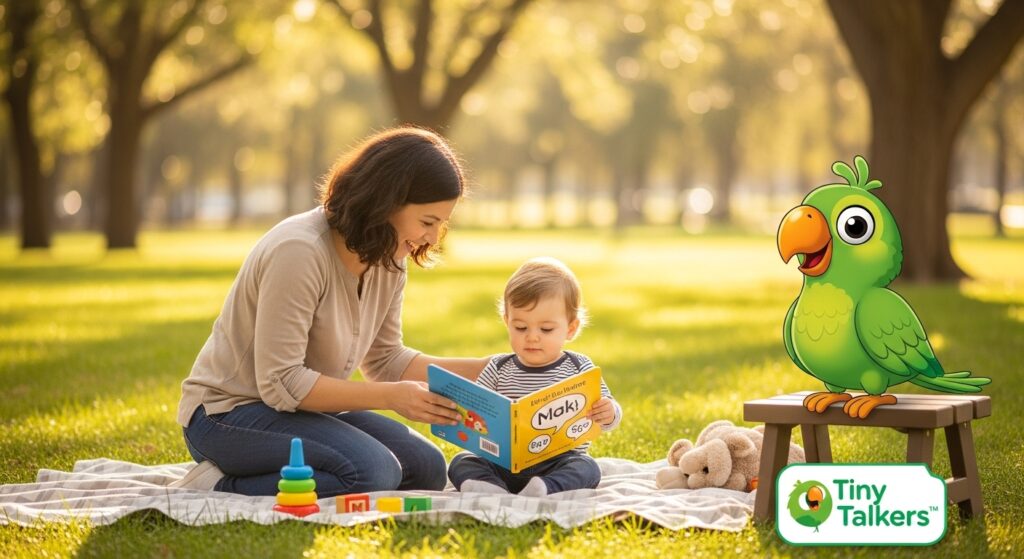Supporting your toddler’s growth and development is a journey filled with joy, questions, and the occasional challenge. If you’re considering speech therapy for your little one, understanding what happens during a session can help set your mind at ease. Here, we’ll guide you through the process, providing insight into the structure, strategies, and goals of speech therapy for toddlers.
Understanding the Role of Speech Therapy
Speech therapy is designed to assist children in developing effective communication skills. For toddlers, this often involves enhancing both verbal and non-verbal communication, addressing issues like delayed speech, articulation problems, or difficulties with language comprehension. Speech therapists, or speech-language pathologists (SLPs), are trained professionals who tailor their approach to each child’s unique needs.
Preparing for Your First Session
What to Bring
Before attending a session, parents may wonder what to bring along. Typically, you’ll want to have:
- A list of concerns: Jot down any specific issues you’ve noticed with your toddler’s speech or language development.
- Medical history: If applicable, include any relevant medical records or previous assessments.
- Favorite toy or book: Familiar objects can make your child feel more comfortable in a new environment.
- Snacks and water: Small breaks can help maintain your child’s energy and engagement during the session.
Setting Expectations
Speech therapy sessions are generally structured yet flexible, adapting to the needs of the child. The therapist will initially focus on building rapport with your toddler, creating a comfortable and trusting environment. This is crucial for productive interactions and effective learning.
Inside the Session
Initial Assessment
The first session typically involves an initial assessment. The therapist will observe your child’s communication skills, possibly using playful activities to gauge their current level of speech and language development. This assessment helps the therapist identify specific areas to target in future sessions.
Structured Activities
Once the assessment is complete, the therapist will introduce a series of activities designed to address your child’s specific needs. These might include:
- Play-based learning: Using toys, games, and imaginative play to encourage speech and language use.
- Storytelling and reading: Engaging with books to improve vocabulary and comprehension.
- Articulation exercises: Practicing specific sounds or words to enhance clarity.
- Language games: Interactive activities that promote understanding and use of language in context.
Parental Involvement
In many cases, speech therapists will involve parents in the session. You might be invited to participate in activities or observe from a distance. This involvement not only supports your child’s progress but also empowers you to reinforce strategies at home.
Goals and Progress Tracking
Setting Goals
Every child is different, so therapists establish individualized goals based on the initial assessment. These goals are specific, measurable, and tailored to your toddler’s developmental stage. Common objectives might include expanding vocabulary, improving sentence structure, or enhancing social communication skills.
Regular Progress Reviews
Progress reviews are a crucial component of speech therapy. Therapists will regularly assess your child’s development, adjusting strategies and goals as needed. These reviews provide valuable insights into your child’s growth and ensure that therapy remains aligned with their evolving needs.
The Importance of Consistency
Frequency of Sessions
The frequency of speech therapy sessions can vary. Some children may benefit from weekly appointments, while others might need more or less frequent visits. Consistency is key, as regular sessions help reinforce skills and facilitate steady progress.
Practicing at Home
Speech therapy doesn’t end when the session is over. Therapists often provide parents with exercises or activities to practice at home. Integrating these strategies into your daily routine can significantly enhance your child’s development, offering opportunities for continuous learning and improvement.
Overcoming Challenges
Common Concerns
It’s natural to have concerns or questions about your child’s speech therapy journey. Common worries include whether your child will cooperate, how quickly they will progress, and how to support their learning at home. Open communication with your therapist can address these concerns, offering guidance and reassurance.
Celebrating Successes
Every small step forward is a victory. Celebrating successes, no matter how minor they seem, can boost your child’s confidence and motivation. Positive reinforcement encourages continued effort and engagement in the learning process.
Conclusion
Embarking on speech therapy with your toddler can feel like a big step, but it’s an invaluable investment in their future communication skills. By understanding the structure of a session, the role of the therapist, and the importance of consistency and parental involvement, you can provide the best support for your child’s development. Remember, each child’s journey is unique, and progress may come at different paces. With patience, encouragement, and collaboration with your therapist, you’re setting the stage for your toddler to thrive in their communication skills.

